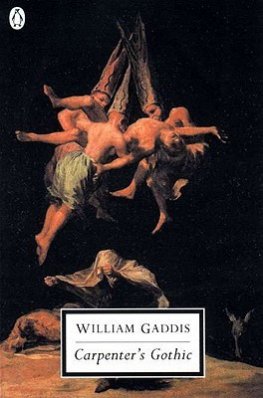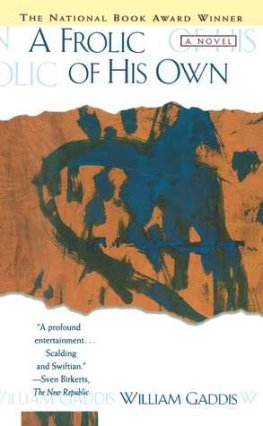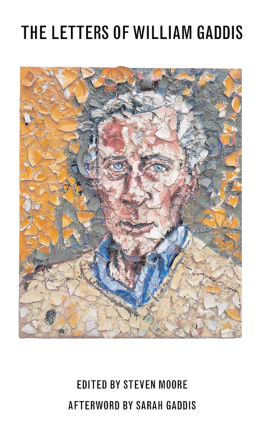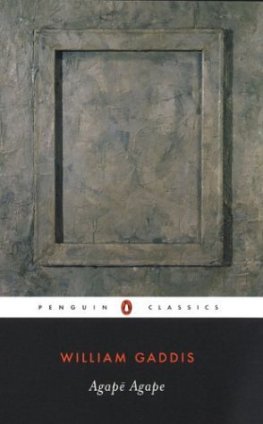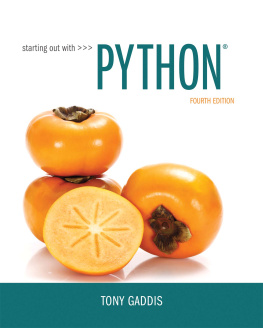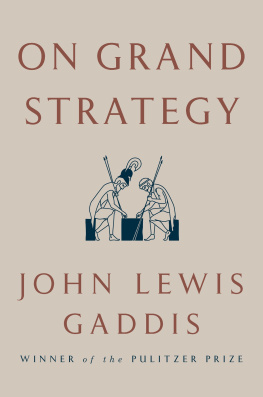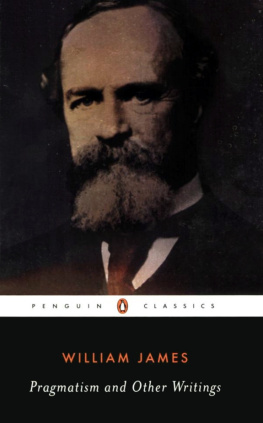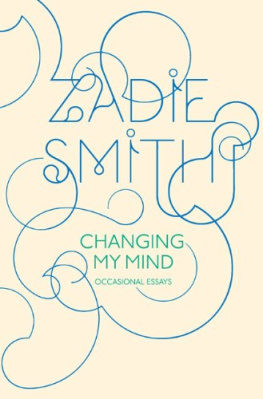William Gaddis - The Rush for Second Place: Essays and Occasional Writings
Here you can read online William Gaddis - The Rush for Second Place: Essays and Occasional Writings full text of the book (entire story) in english for free. Download pdf and epub, get meaning, cover and reviews about this ebook. year: 2005, publisher: Atlantic, genre: Romance novel. Description of the work, (preface) as well as reviews are available. Best literature library LitArk.com created for fans of good reading and offers a wide selection of genres:
Romance novel
Science fiction
Adventure
Detective
Science
History
Home and family
Prose
Art
Politics
Computer
Non-fiction
Religion
Business
Children
Humor
Choose a favorite category and find really read worthwhile books. Enjoy immersion in the world of imagination, feel the emotions of the characters or learn something new for yourself, make an fascinating discovery.

- Book:The Rush for Second Place: Essays and Occasional Writings
- Author:
- Publisher:Atlantic
- Genre:
- Year:2005
- Rating:3 / 5
- Favourites:Add to favourites
- Your mark:
- 60
- 1
- 2
- 3
- 4
- 5
The Rush for Second Place: Essays and Occasional Writings: summary, description and annotation
We offer to read an annotation, description, summary or preface (depends on what the author of the book "The Rush for Second Place: Essays and Occasional Writings" wrote himself). If you haven't found the necessary information about the book — write in the comments, we will try to find it.
The Rush for Second Place: Essays and Occasional Writings — read online for free the complete book (whole text) full work
Below is the text of the book, divided by pages. System saving the place of the last page read, allows you to conveniently read the book "The Rush for Second Place: Essays and Occasional Writings" online for free, without having to search again every time where you left off. Put a bookmark, and you can go to the page where you finished reading at any time.
Font size:
Interval:
Bookmark:
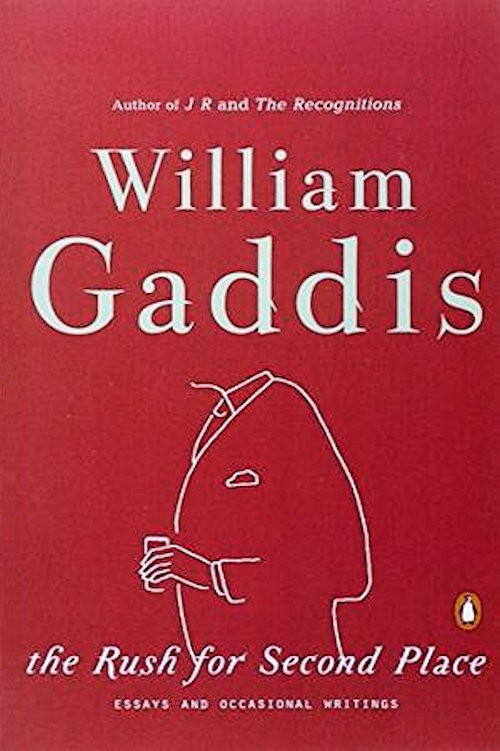
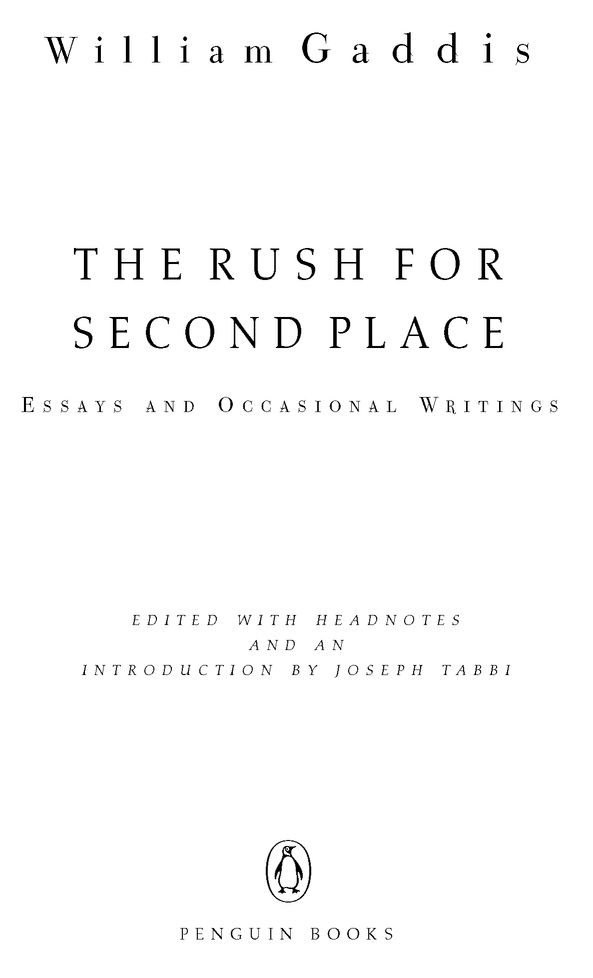
Published by the Penguin Group
Penguin Putnam Inc., 375 Hudson Street,
New York, New York 10014, U.S.A.
Penguin Books Ltd, 80 Strand,
London WC2R 0RL, England
Penguin Books Australia Ltd, 250 Camberwell Road,
Camberwell, Victoria 3124, Australia
Penguin Books Canada Ltd, 10 Alcorn Avenue,
Toronto, Ontario, Canada M4V 3B2
Penguin Books India (P) Ltd, 11 Community Centre,
Panchsheel Park, New Delhi - 110 017, India
Penguin Books (N.Z.) Ltd, Cnr Rosedale and Airborne Roads,
Albany, Auckland, New Zealand
Penguin Books (South Africa) (Pty) Ltd, 24 Sturdee Avenue,
Rosebank, Johannesburg 2196, South Africa
Harmondsworth, Middlesex, England
Copyright the Estate of William Gaddis, 2002
All rights reserved
in The New York Times; The Rush for Second Place in Harpers; J R Up to Date
(in different form), An Instinct for the Dangerous Wife, and Erewhon and the
Contract with America in The New York Times Book Review; Old Foes with
New Faces in The Yale Review; J. Danforth Quayle in Esquire; and tributes
to Dostoevski and Mothers in Frankfurter Allgemenine Zeitung.
http://us.penguingroup.com
will be prosecuted; persons attempting to find a moral in it will
be banished; persons attempting to find a plot in it will be shot.
By order of the author.
Font size:
Interval:
Bookmark:
Similar books «The Rush for Second Place: Essays and Occasional Writings»
Look at similar books to The Rush for Second Place: Essays and Occasional Writings. We have selected literature similar in name and meaning in the hope of providing readers with more options to find new, interesting, not yet read works.
Discussion, reviews of the book The Rush for Second Place: Essays and Occasional Writings and just readers' own opinions. Leave your comments, write what you think about the work, its meaning or the main characters. Specify what exactly you liked and what you didn't like, and why you think so.

